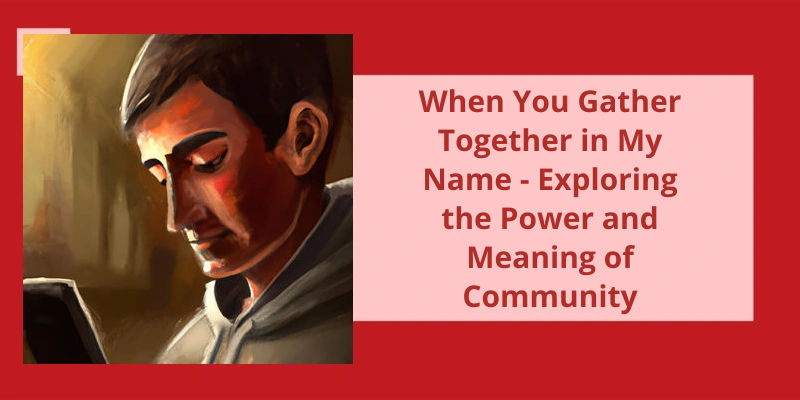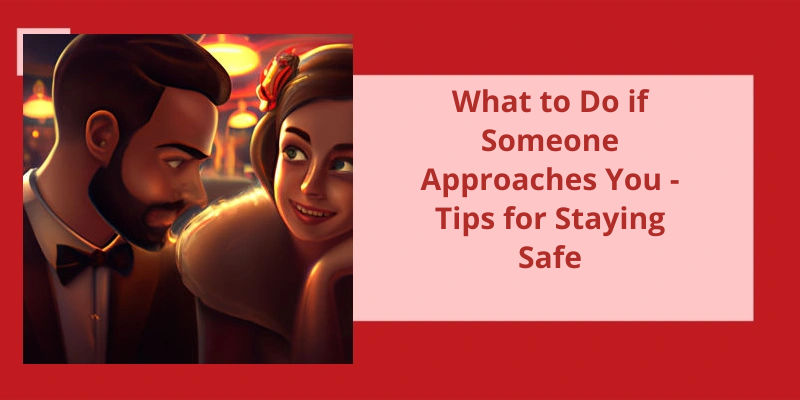In a world that thrives on constant communication and social interaction, experiencing the isolation and silence brought on by others' refusal to engage can be emotionally challenging and puzzling. It’s an unfortunate reality that some individuals may find themselves in circumstances where conversations become scarce or even non-existent. This phenomenon, often known as social ostracism or the silent treatment, can have profound effects on one's mental and emotional well-being. Understanding the reasons behind this behavior and exploring strategies to cope with and potentially resolve such situations is crucial for those who find themselves in this perplexing situation. In this article, we will delve into the intricacies and step-by-step processes involved in comprehending what it’s called when people don't talk to you, the potential causes behind this behavior, and how to navigate and address this predicament effectively.
What Is It Called When Someone Won’t Talk to You?
Silent treatment is a term used to describe a situation where someone deliberately withholds communication, response, or acknowledgment from another person. It’s a form of passive-aggressive behavior often used as a means of control or punishment. When someone refuses to talk to you, it can be a deeply frustrating and hurtful experience, as it leaves you feeling ignored, isolated, and rejected.
When faced with the silent treatment, it’s important to remember that this behavior is a reflection of the other persons emotional immaturity and their inability to effectively communicate and resolve issues. It isn’t your fault, and you shouldn’t blame yourself for their actions. It’s crucial to maintain your self-worth and not allow their silence to affect your self-esteem.
To address the situation, it’s essential to approach the silent person calmly and express your concerns about their behavior. Use “I” statements to communicate how their silence makes you feel and explain the impact it’s on the relationship. Let them know that their behavior is hurting you and hindering your ability to resolve any underlying issues.
If the silent treatment becomes a recurring pattern or escalates to an unhealthy level, it may be necessary to seek outside help from a therapist or counselor. They can provide guidance and support in navigating the difficulties and help you explore healthier ways of communicating and resolving conflicts.
Remember, healthy relationships require open and honest communication. If someone consistently refuses to talk to you or engage in conversation, it may be a sign of deeper underlying issues that need to be addressed for the sake of your well-being and the relationship as a whole.
However, there are other reasons why someone may go silent in a conversation. In certain situations, individuals may choose to remain silent as a form of passive aggression or as a means of exerting control over the conversation dynamics. Understanding the underlying motivations behind this behavior can help foster healthier and more effective communication.
What Does It Mean When Someone Goes Silent in a Conversation?
When someone goes silent in a conversation, it can mean several things. One possible reason is avoidance. In certain situations, people may choose to stay silent because they don’t know what to say or want to avoid conflict. It can be difficult for some individuals to articulate their thoughts and emotions effectively, so they prefer to remain silent rather than risk saying something they may regret. This silence can create tension and leave the other person feeling confused or frustrated.
Instead of being able to communicate their feelings openly, a person may resort to using the silent treatment as a way to convey their displeasure. They may want their partner or the other conversationalist to understand that something is wrong, but they may lack the skills or words to express their emotions. This silent act becomes a way of communicating indirectly, albeit in an unhealthy manner.
Additionally, an individual might go silent in a conversation as a defense mechanism. They may feel threatened or overwhelmed by the topic or the person they’re talking to, leading them to shut down in order to protect themselves emotionally. This may be a learned behavior from past experiences that taught them it’s safer to remain silent rather than engage in confrontation or vulnerability. In such cases, it’s important to create a safe and supportive environment that encourages open and respectful communication.
In some instances, silence can also be a sign of deeper underlying issues within the relationship. It could indicate a breakdown of trust, unresolved resentments, or a lack of emotional intimacy. If the silence is a recurring pattern, it may be necessary to address these underlying issues and seek professional help if needed.
Overall, when someone goes silent in a conversation, it’s essential to approach the situation with empathy and understanding. By being patient and open, you can create a safe space for the individual to express themselves and work towards resolving any underlying conflicts or emotions.
Source: What does it mean when people fall silent during a …
It’s intriguing why some individuals tend to avert their gaze during conversations. This behavior serves a dual purpose – protecting themselves from potential judgment and allowing them to concentrate free from visual distractions. Rather than simply listing these reasons, understanding the psychology behind this behavior sheds light on the complexities of interpersonal communication.
Why Do Some People Look Away While Talking?
Have you ever noticed that some people tend to look away while they’re talking to you? This behavior may seem peculiar, but it actually serves a couple of purposes. First and foremost, looking away allows individuals to shield themselves psychologically from the potential embarrassment of being judged for not proceeding or articulating their thoughts effectively. By avoiding direct eye contact, they can avoid feeling self-conscious about their speech or potential mistake.
Moreover, this behavior can also be influenced by cultural norms and personal preferences. In some cultures, direct eye contact is perceived as impolite or aggressive, leading individuals to look away automatically while conversing. Similarly, some individuals may have personal preferences or experiences that make them uncomfortable with extended eye contact, causing them to avert their gaze during conversations.
Firstly, it helps protect them from potential embarrassment or judgment. Secondly, it allows them to concentrate more effectively on their own thoughts and ideas by eliminating visual distractions. It’s essential to remember that this behavior doesn’t necessarily indicate disinterest or disrespect and can be influenced by cultural norms or personal preferences.
However, sometimes a person may refuse to talk to you for reasons unrelated to manipulation or control. It’s important to consider the context of the situation and maintain open-mindedness before making decisions about the future of the relationship.
What Does It Mean When Someone Refuses to Talk to You?
What does it mean when someone refuses to talk to you? If you find yourself in a situation where someone consistently refuses to meet or engage in conversation with you, it may be a sign that they’re resorting to a form of manipulation known as the silent treatment. This behavior is often employed as a means of controlling or exerting power over the other person. It’s important to recognize when this is happening and to take appropriate action.
When faced with someone who consistently refuses to talk or meet with you, it’s crucial to understand that their behavior isn’t a reflection of your self-worth or value as a person. It isn’t your responsibility to fix the situation or force them to communicate with you. Instead, it’s essential to prioritize your own well-being and emotional health.
In such situations, it’s perfectly acceptable to calmly express your understanding of their choice not to engage in communication. Let them know that you acknowledge their unwillingness to talk and that you believe it’s best for you to distance yourself from the relationship. By doing so, you assert your own boundaries and make it clear that you won’t tolerate being manipulated or controlled.
Walking away from a relationship in which someone consistently refuses to talk to you can be challenging and emotionally draining. However, it’s a necessary step in preserving your own self-respect and mental well-being. Surround yourself with supportive friends or family members who can provide guidance and comfort during this time. Remember, you deserve to be in relationships that are based on open and respectful communication.
It’s important to understand that their behavior isn’t a reflection of your worth. You’ve the right to express your understanding of their choice and decide to distance yourself from the relationship. It may be challenging, but prioritizing your own well-being is essential. Seek support from loved ones as you navigate this difficult situation and remember that healthy relationships are built on open and respectful communication.
Communication can be complex, and it’s not uncommon for people to occasionally go silent during conversations. While there could be various reasons for this reaction, it’s essential to avoid jumping to conclusions. Instead, try setting a positive tone from the beginning by expressing your positive intentions and demonstrating respect for the other person. By addressing any potential concerns or apprehensions, you may encourage a more open and engaged dialogue.
Why Do People Go Silent When I Talk?
It can be really disheartening when people go silent and don’t respond when youre talking. It leaves you wondering why theyre not engaging with you and can make you feel ignored or insignificant. There could be several reasons why this happens, and it’s important to understand them in order to address the issue.
One possibility is that the person youre talking to has had negative experiences in the past, resulting in a fear of social interactions. They may assume that any conversation will turn out badly and are therefore hesitant to engage. To counteract this, make sure to state your positive intentions and express your respect for them from the beginning. This can help create a more welcoming and open atmosphere, encouraging them to be more responsive.
Another reason could be that the person simply isnt interested in the topic youre discussing. Some individuals may have specific interests or preferences, and if your conversation doesn’t align with those, they might tune out. In such cases, it might be helpful to ask open-ended questions or find common ground to spark their interest.
Additionally, it’s possible that the person youre talking to is naturally introverted or shy. They may find it difficult to engage in conversations, especially with new people. In these situations, give them space and time to open up at their own pace. Being patient and understanding can go a long way in making them feel more comfortable and encouraging them to participate in the conversation.
In some instances, the person might be dealing with personal issues or distractions that prevent them from fully engaging in the conversation. It’s important to be empathetic and considerate in these situations. Avoid pressuring them to respond, as it may only worsen their discomfort. Instead, show understanding and offer support if needed.
Lastly, it’s essential to consider your own communication style and approach. Reflect on how you come across to others and whether there are any patterns that might contribute to people going silent. Taking the time to improve your own communication skills can greatly impact how others respond to you.
Cultural Differences in Communication: Discuss How Different Cultural Norms and Expectations Around Conversation and Silence Can Influence People’s Response During Interactions.
In different cultures, the expectations and norms around conversation and silence can vary significantly. For example, in some cultures, silence is seen as a sign of respect or thoughtfulness, while in others, it may be interpreted as discomfort or disinterest.
When people from different cultural backgrounds interact, these differences can sometimes lead to misunderstandings or misinterpretations. For instance, someone from a culture that values direct communication may perceive someone from a more reserved culture as being unresponsive or standoffish.
It’s important to be mindful of these cultural differences and approach interactions with an open mind and a willingness to adapt. By being respectful of other cultures’ communication styles, we can foster better understanding and connection with people from diverse backgrounds.
There can be various reasons why people may stop talking when you approach them. One possibility is that they do so out of respect, considering it polite to give you their undivided attention. Another reason could be fear, as some individuals may feel intimidated or uneasy in your presence. Moreover, age differences might play a role, as people tend to engage more comfortably with those within their age group. Additionally, it’s possible that others refrain from continuing the conversation because they prefer not to give you the chance to form an opinion based on their discussion. This could be due to a previous action where you may have reacted or made comments that influenced their perception.
Why Do People Stop Talking When I Come Around?
Have you ever wondered why people suddenly stop talking when you enter a room or join a conversation? It can be a perplexing and isolating experience. There are several possible reasons for this phenomenon, and it’s essential to consider them before jumping to conclusions or feeling discouraged.
One possibility is that people stop talking out of respect for you. You may have a commanding presence or an air of authority that causes others to pause and give you the floor. It could be a sign that they value your opinion and see you as a person worth listening to.
Another reason why people might stop talking when youre around is out of fear. It’s possible that you unknowingly intimidate others, making them feel a bit scared of engaging in conversation with you. This fear could stem from various factors, such as your demeanor, body language, or even your reputation. If this is the case, it might be helpful to reflect on how you present yourself and consider adjusting your approach to make others feel more comfortable around you.
Additionally, people may not talk when youre present simply because youre not in their age group. Age can play a significant role in social dynamics, and individuals often feel more comfortable interacting with those of similar age or life experiences. If you find that people only stop talking when youre among a particular age group, it’s likely not a reflection of you personally but rather a natural inclination for people to gravitate toward those they can relate to.
Some individuals may choose not to share their conversation with you out of a fear of judgment. The presence of a new person can make people hesitant to express their thoughts openly, as they may worry about your potential opinions of them. This may lead them to become guarded or withdraw from the conversation, unintentionally making you feel left out.
Finally, it’s worthwhile to consider whether any of your previous actions or comments have had an impact on how people behave around you. While it’s impossible to determine with certainty, it’s conceivable that something you said or did in the past caused others to be more cautious or distant. If this is the case, reflecting on your behavior and striving to be more empathetic and understanding in future interactions may help restore open communication.
Strategies for Improving Communication and Making Others Feel More Comfortable in Your Presence.
- Active listening techniques
- Using open and inclusive language
- Non-verbal communication awareness
- Building rapport through empathy
- Asking clarifying questions
- Respecting different communication styles
- Providing constructive feedback
- Using positive body language
- Creating a supportive and non-judgmental environment
- Being mindful of cultural differences
Conclusion
In conclusion, the phenomenon of people not talking to you can be a complex and multifaceted experience. It’s known as social exclusion or ostracism, and it can have detrimental effects on one's mental and emotional well-being. Whether intentional or unintentional, the silence and lack of communication can leave individuals feeling isolated, lonely, and unsure of their place in social interactions. This blog aims to shed light on this issue step by step, providing insights, strategies, and support for those who’ve experienced or are currently experiencing social exclusion. By learning about different aspects of this phenomenon and implementing effective coping mechanisms, individuals can regain their sense of worth, belonging, and connection with others. Remember, everyone deserves to be heard and valued in interpersonal relationships, and through understanding and compassion, we can strive towards creating a more inclusive and empathetic society.






